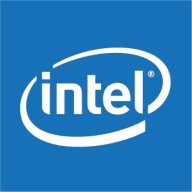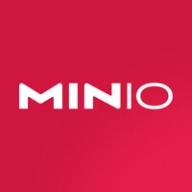


Find out what your peers are saying about Red Hat, Dell Technologies, Nutanix and others in File and Object Storage.
| Product | Market Share (%) |
|---|---|
| MinIO | 15.6% |
| Pure Storage FlashBlade | 5.5% |
| Intel DAOS | 1.0% |
| Other | 77.9% |


| Company Size | Count |
|---|---|
| Small Business | 11 |
| Midsize Enterprise | 11 |
| Large Enterprise | 21 |
| Company Size | Count |
|---|---|
| Small Business | 11 |
| Midsize Enterprise | 4 |
| Large Enterprise | 9 |
FlashBlade is the industry’s most advanced scale-out storage for unstructured data, powered by a modern, massively parallel architecture to consolidate complex data silos (like backup appliances and data lakes) and accelerate tomorrow’s discoveries and insights.
Intel has been building an entirely open source software ecosystem for data-centric computing, fully optimized for Intel® architecture and non-volatile memory (NVM) technologies, including Intel® Optane™ DC persistent memory and Intel® Optane™ DC SSDs. Distributed Asynchronous Object Storage (DAOS) is the foundation of the Intel exascale storage stack. DAOS is an open source software-defined scale-out object store that provides high bandwidth, low latency, and high I/O operations per second (IOPS) storage containers to HPC applications. It enables next-generation data-centric workflows that combine simulation, data analytics, and AI.
MinIO is an open-source object storage system. It is designed to efficiently store and retrieve unstructured data, such as photos, videos, and backups. MinIO can be used as a standalone object storage server or as part of a larger system, such as a data lake or a private cloud, and can be deployed on-premise, in the cloud, or in a hybrid environment, making it a flexible storage solution for a variety of use cases.
MinIO’s features include erasure coding, bitrot protection, and checksum validation, which help ensure data integrity and reliability. The solution’s multi-tenancy support makes it ideal for multi-user environments. MinIO’s edge computing tools enable data storage and processing closer to users' locations, reducing latency and improving performance. MinIO can easily scale to accommodate storage and power demands, making it ideal for use in large-scale, data-intensive environments.
MinIO Benefits and Features:
MinIO offers several key benefits and features for organizations looking for a scalable and high-performing object storage solution:
Reviews from Real Users
MinIO stands out among its competitors for a number of reasons. Several major ones are its flexibility, integration options, and performance.
Süleyman Fazıl Y., a senior software engineer at a tech services company, writes, “The most valuable features are that MinIO is open, it works on-premise, and is compatible with the Amazon industry which is great for finding compatible libraries in many languages which is very good for developers.”
Rebecca S., CTO at NIASE, says, “MinIO is much improved over the prior solution, updates are simple to apply, and we anticipate that future capacity requirements will be easier to meet. Our customers are using this solution to retrieve tens of thousands of objects (documents and files) per hour, and MinIO seems to be able to keep up with it.”
We monitor all File and Object Storage reviews to prevent fraudulent reviews and keep review quality high. We do not post reviews by company employees or direct competitors. We validate each review for authenticity via cross-reference with LinkedIn, and personal follow-up with the reviewer when necessary.